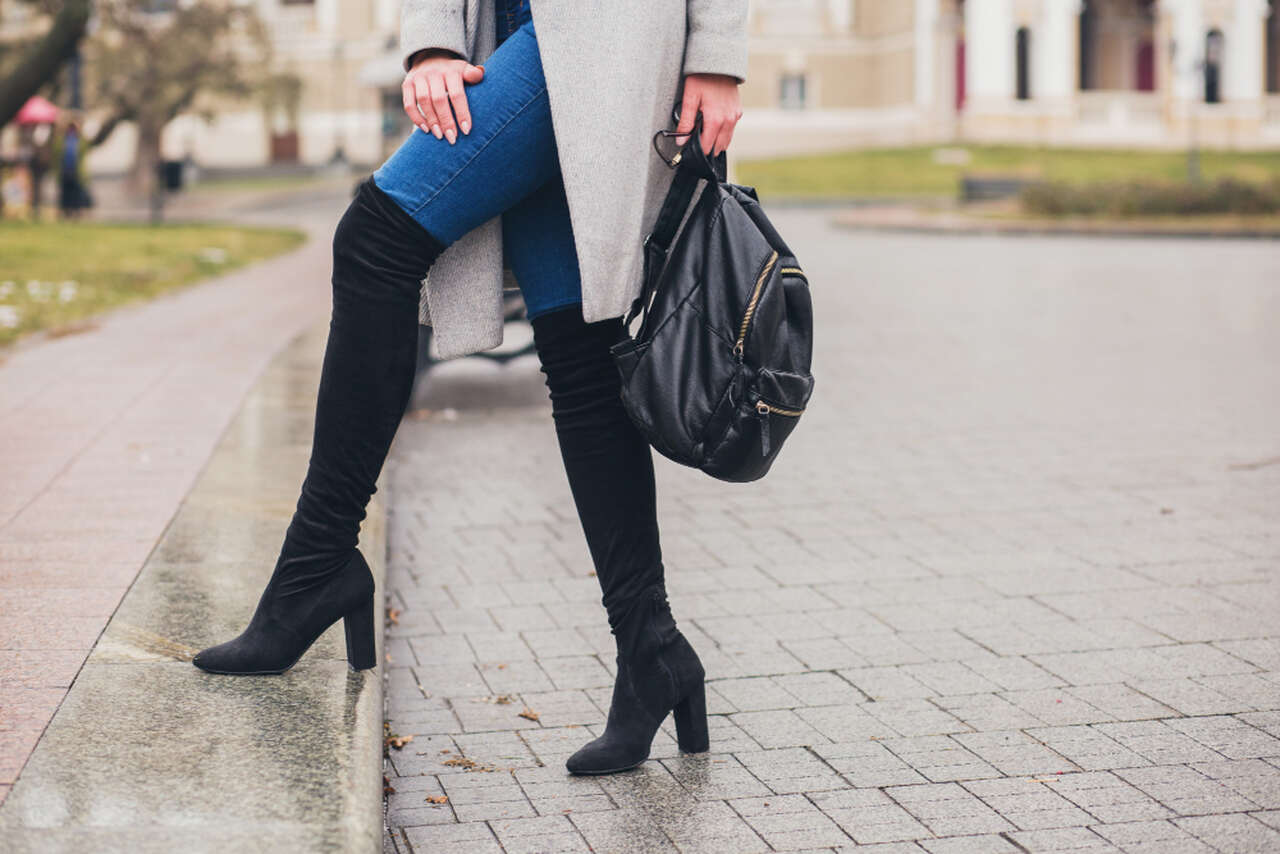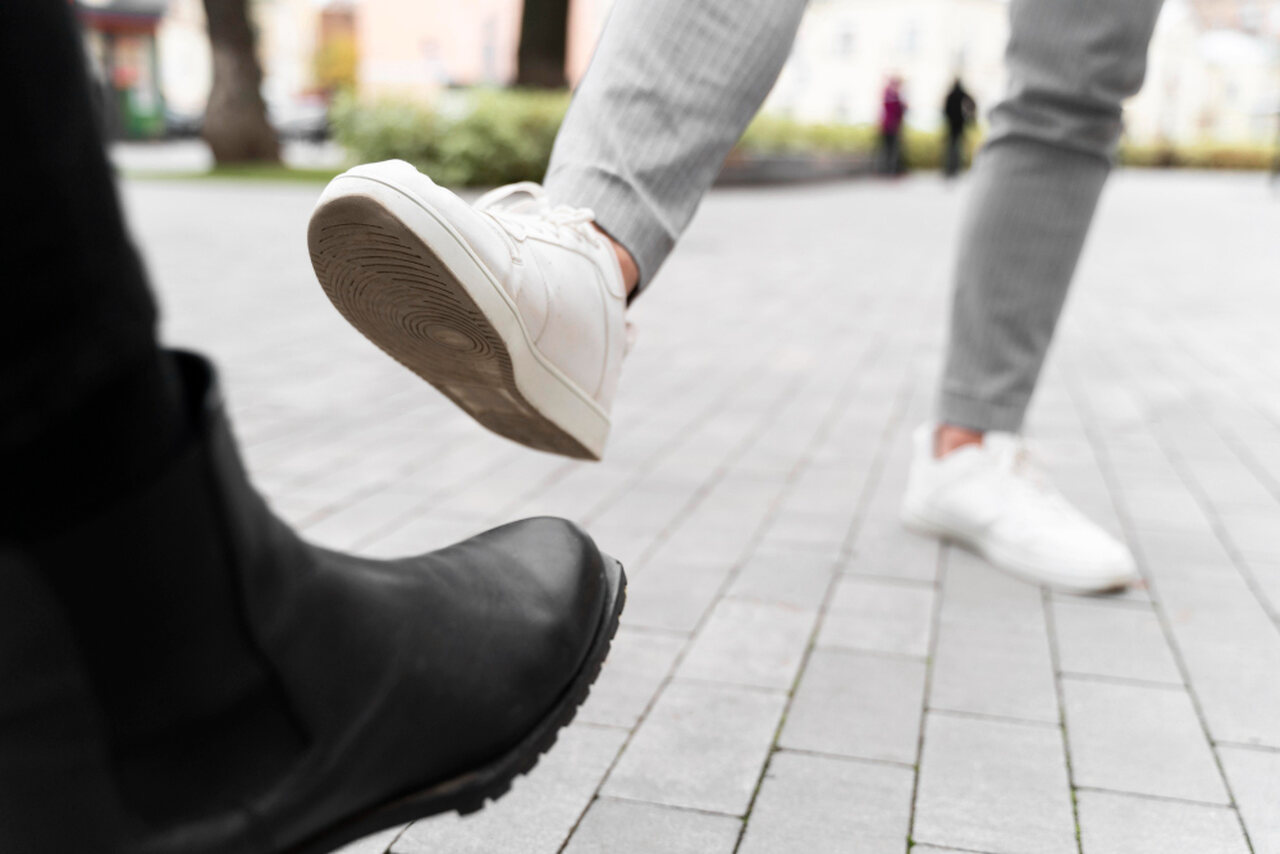What to do to prevent shoes from slipping? 8 proven solutions
It might seem that slippery shoes are a problem mainly in autumn and winter, when the first frosts appear and the sidewalks are covered with a layer of ice. In fact, their soles can lose their grip on the ground, regardless of the season. Sometimes all it takes is a little rain or a stroll through a cobblestone-covered marketplace. When footwear slips, it is easy to lose balance and fall, which can result in serious injury. Therefore, it is advisable to choose stable soles that provide sufficient friction against the ground. You can also lubricate them with a suitable product to avoid inconvenience. Check out what to do to keep your shoes from slipping!
Table of Contents:
- Slippery soles in shoes - why they can lose traction?
- What to grease your shoes so they don't slip?
- Other home remedies for slippery shoes
- How to choose shoes that do not slip?

Slippery soles in shoes - why they can lose traction?
Slippery soles in shoes are a big problem, as they do not provide us with stability and safety during movement. Favorite sneakers, ballerinas, boots or boots are losing their grip m.in., when a plastic was used that gives insufficient friction in contact with the ground. Beware of materials that have poor traction on wet and slippery surfaces, such as smooth rubber and plastic. Also control the wear of the sole. Unfortunately, as time passes, the tread wears down, making it start to slip on the ground we walk on.
Even shoes that don't slip every day sometimes lose their grip due to harsh weather conditions. When it rains or snows and the sidewalk is covered with a layer of ice, the risk of falling increases. Fortunately, some footwear manufacturers use special soles to prevent potential injuries.
Sometimes the problem is not so much slippery soles in shoes, but their improper care. If you don't remove dirt that settles on the tread on an ongoing basis, you can contribute to the deterioration of traction.
When buying new footwear, pay attention to its quality. Some brands for the safety of their customers introduce specially designed soles that exhibit anti-slip properties.
While we can make informed decisions and avoid complications in subsequent purchases, we often have to find a way to wear previously acquired slippery shoes. What to do when their soles lose traction and put us at risk of injury? We have prepared a handful of useful tips for you.
What to grease your shoes so they don't slip?
In your closet, beautiful and comfortable shoes that have one drawback - they easily lose their grip on wet and icy surfaces. Fortunately, you don't have to part with them and incur unplanned expenses to buy new shoes. There are proven ways to increase the friction of the sole in contact with the ground and thus prevent a dangerous injury. Find out what to grease your shoes with so they don't slip!
- Hot glue is a product worth applying to slippery shoe soles. Choose a few hotspots that most easily lose traction on contact with the ground. After application, wait for the glue to dry and form a layer to increase friction.
- There are various ways to slippery shoes to eliminate the problem. You can put a thin layer of wikol-type glue on their soles, and then sprinkle it with sand. After drying, a rough surface that resists slipping will be created.
- In shoe stores you can also find special anti-slip sprays that are applied to the soles of shoes. Their carefully selected ingredients increase adhesion to the substrate. They are also considered simple to use and effective. Using professional products, you get a guarantee that you will not damage your shoes.

Other home remedies for slippery shoes
Sometimes we come across footwear that seems made for us. Extremely favorable looks on the leg, providing the foot with comfort and convenience. However, it has one major drawback - slippery soles. What to do when you easily lose your balance on wet and icy surfaces because of them? Use the following prompts. Especially for you we have collected home remedies for slippery shoes.
- Reach for sandpaper or a nail file, then wipe the sole of your shoes with it. In this simple way you will give them the desired roughness and provide better adhesion to the ground.
- You can buy non-slip tapes in home improvement stores, and then stick them to the soles of your shoes to avoid inconvenience.
- Use a used rubber glove. Cut a piece out of it and glue it to the sole of the shoe. The mentioned solution works similarly to professional anti-slip pads.
- Shoes that have a smooth sole slip most easily. Fortunately, you can change this with a knife or other sharp tool. You need it to gently scratch the surface of the sole, obtaining practical grooves.
- If you want to quickly and effectively reduce slippage, gently sprinkle the sole of your shoes with potato flour.
Although home remedies for slippery shoes are considered simple, inexpensive and effective, the next time you choose footwear, go for a non-slip sole.
How to choose shoes that do not slip?
Slippery shoes are quite troublesome, as you have to carefully take each step in them to avoid losing your balance. While it is possible to increase friction with the ground using the above advice, it is best if the footwear does not give rise to any complications. Its thoughtful and carefully planned purchase will help you avoid inconveniences. Below is a closer look at the most important issues to consider when making a decision. We suggest how to find shoes that don't slip!
- The sole of the shoe plays a key role, as the material it is made of determines its performance characteristics. If you want a good grip on the ground, choose rubber or rubber.
- A noteworthy feature seems to be the deep, clear tread, whose multidirectional patterns help maintain balance on different surfaces.
- A smooth sole increases slippage during movement, so try to avoid it, especially in autumn and winter footwear.
- If you are one of those who play sports, remember that shoes should be adapted to a certain surface. A different sole will work on the turf of a soccer stadium than on a tennis court. Buy footwear designed for a particular physical activity and you will gain safety and comfort.
- When choosing autumn and winter shoes for everyday use, pay attention to whether they have SRC or SRA certification, which certifies their anti-slip properties.
- Sometimes professional work forces us to come into contact with greasy and wet surfaces, which promote dangerous injuries. Therefore, it is advisable to perform your duties using work shoes with non-slip soles. The shoes should comply with applicable health and safety standards.
- Flexible soles that feel sticky to the touch usually have good grip.
Each of us has bought slippery shoes at least once in our lives, which made it difficult to maintain balance on wet and icy surfaces. The problem can be prevented by investing in footwear with soles with good traction. If your boots or sneakers are slipping, try increasing friction by using non-slip insoles. Home remedies will also prove useful, which we have outlined in our article. Remember not to take slippery shoes lightly for safety reasons, as they can lead to a dangerous injury.